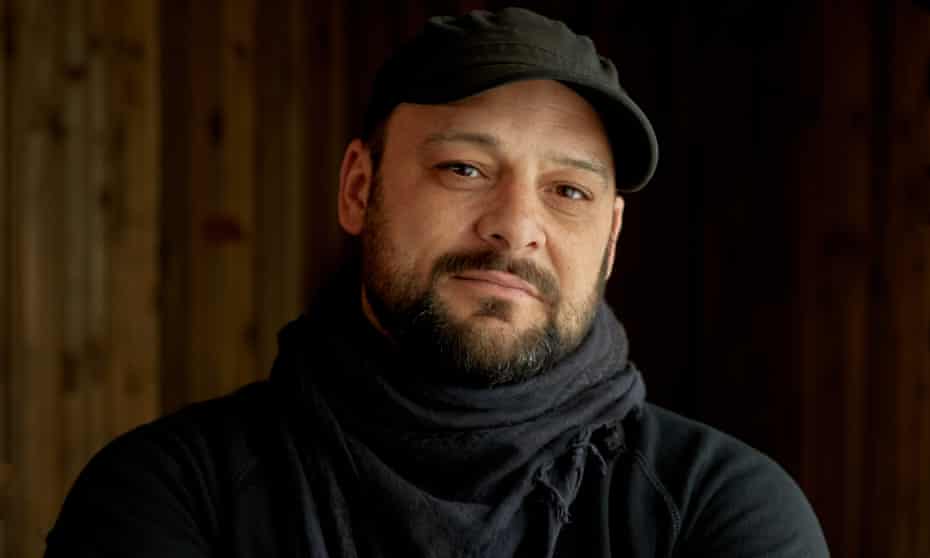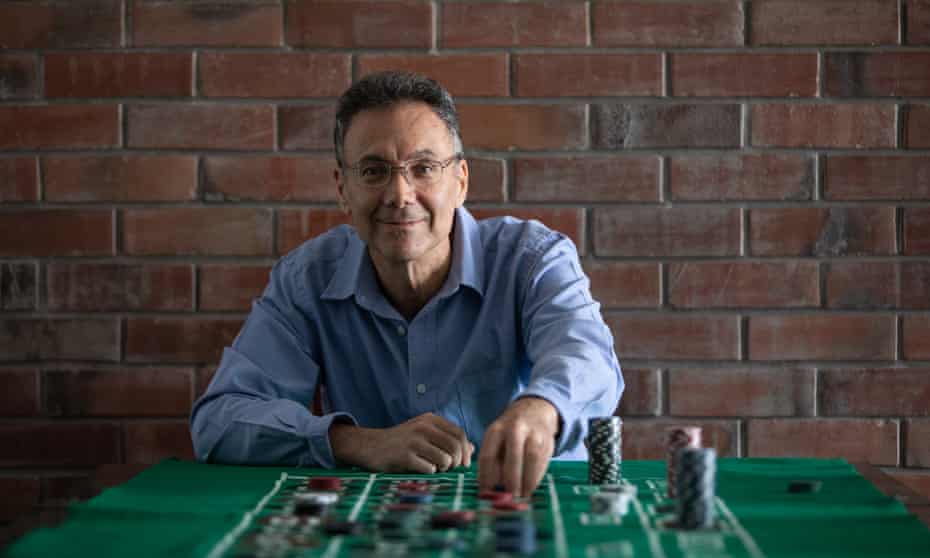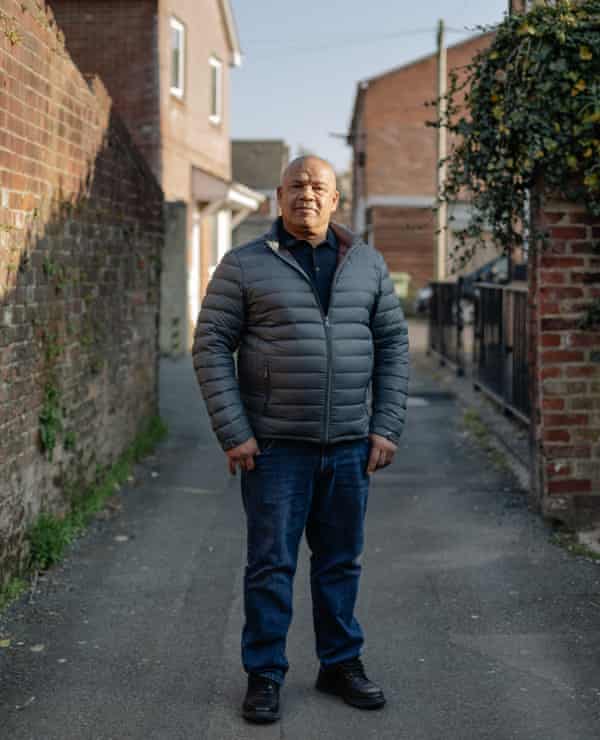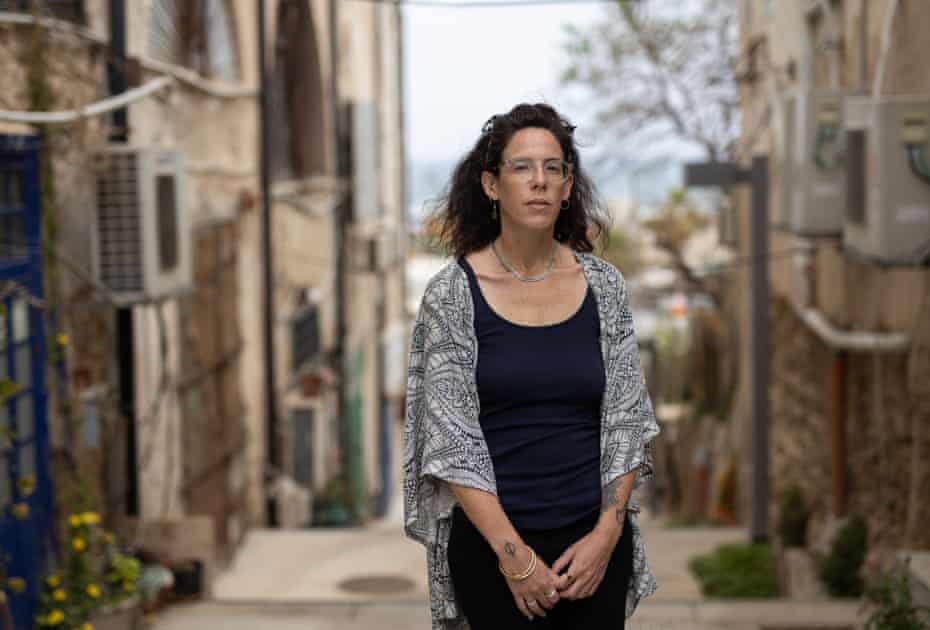‘The other women in my prison had real problems. I listened’: Janice Nix, 62, London
My life as a criminal wasn’t glamorous. People think of the money, but not what happens after midnight: the police you have to hide from; the family members who won’t talk to you; the thieves, robbers and informants on your back. This is what I now remind people who find themselves sucked into the underworld. Living that life taught me how it feels to be on the wrong side of the law, and equipped me with tools to help people escape it, because that’s precisely what I did.
It all started when I got off the train in London, alone, in the early 1970s. I’d run away from home in Leicester, at 15. I quickly learned how to shoplift, only high-end material. By the late 80s I spent my days stealing furs from Harrods, and my nights smoking crack cocaine.
We had this problem: whenever we’d call our drug dealer, he’d turn up late. One afternoon I turned to my friend and said, why don’t we sell this stuff ourselves? I thought I was solving problems, not creating them.
In 1992, I got sentenced to nine years in prison for possession with intent to supply class A drugs. By 2002, I was in trouble with the law again, and was sent away for another eight and a half years. By the time I’d nearly finished my stretch, I was totally alone. My mother died while I was inside; I was locked up when I lost my brother. I had sent my daughter to America for her own safety, too. The rest of my family wanted nothing to do with me. My release was looming, but where would I go?
I turned to the other women in my prison – and something switched. I became a listener: these women had real problems. It put my life in perspective. I realised that I – unlike many of them – had ended up where I was by choice. And I could see the damage I had been doing. I realised the impact drugs have on people’s lives.
I’d done close to 17 and a half years in total, but it was the final months which made me stop and dig deep. Aged 48, I went to see the prison counsellor, the first stop on my journey of self-discovery.
A while after getting out, I started to volunteer at St Giles Trust, a charity that specialises in rehabilitation. They had helped me find my bearings, and soon I was ensuring other women got theirs. Years later, staff there told me about a job working with London’s probation trust. They wanted people with lived experience to help with their work. At first, I thought it was funny. Who would listen to me? I didn’t understand my power then.
It took time for me to realise that service users needed someone like me – someone who is real; someone who’d tell them straight, having themselves been through it. I’m not afraid to speak to other women how I see fit. Miss an appointment? I’ll come knocking. My phone is on all night.
I’m not trained professionally. I don’t take my cues from books or lectures. I simply make the women I work with feel human, because I – unlike so many others – treat them like they are. I see myself in them; how could I not?
Janice Nix’s memoir, Breaking Out, is published by HQ
‘I was shown compassion by the people I thought I hated’: Christian Picciolini, 47, Chicago

I help bring people out of far-right extremism. My experiences give me a unique qualification to help. After all, I spent eight years as a neo-Nazi myself. I regret this every day of my life; this is my way of trying to make things right. Now I work for Free Radicals Project, a “disengagement platform” I founded that enables people to exit violence-based extremism. Some people I work with left of their own volition and need help to reintegrate; some are in the movement and are searching for an escape. I also help friends and family members who need guidance on what they can do to help someone they love leave hate behind.
I don’t debate with them, demean them or say that they’re evil. Instead, I listen, to find what I call “potholes” – the things which detoured them in their life’s journey that led them to hate. Then I help them reverse, reflect, and find a new path. Having come from similar circumstances gives me credibility to help them embark on their own journey. I help them see that there are other places they can learn to belong. That’s what happened to me.
Racism wasn’t something I was raised on; it’s not a part of our family DNA. My parents are Italian immigrants who arrived in the US in the mid-1960s – they were victims of plenty of prejudice themselves. They worked hard to provide for us: long hours, day in day out. And that came from a place of love. But it meant I was often left to my own devices – intimate relationships with my family never had the time and space to form.
Through my teens I was searching for identity and purpose. I was ambitious – keen to make something of myself. And then in 1987, at barely 14, I was smoking a joint in an alley when a man walked up to me and grabbed it right out of my mouth. “That’s what the communists and the Jews want you to do,” he said, “to keep you docile.” As he spoke, this stranger looked me right in the eyes.
What a communist was, or a Jew for that matter, I couldn’t have told you. But he paid attention to me, asked me questions and listened. It was all that I’d need to be sucked in. I joined his crowd. Most of the group were a little older than me. For the better part of a decade, I stuck around in these circles, but by 1996 I was exhausted. I was 23 and overwhelmed. And then something happened: I was shown compassion by the people I thought I hated. They had no reason to be kind to me, but they were.
In 1999, I was really struggling, when one of my few friends from outside my white-power circles turned up at my door. She knew I was lost, depressed and had no income. My wife had left me and she’d taken the kids. This friend offered me a job installing new computers for IBM. My first posting was back at my old school.
I was terrified. I knew someone would recognise me. I used to be a Nazi; I’d been kicked out of there twice. Within minutes on my first day I’d run into the black security guard who for years I had terrorised and assaulted. He didn’t recognise me, but I just had this urge to make things right. In the parking lot I tapped him on the shoulder and apologised. He realised who I was and stepped back, afraid. And then he shook my hand and he listened. Through tears, I told him of my shame. He forgave me. He told me I had a story that I needed to tell and made me promise that I’d repair the damage. Right then I knew I needed to denounce what I’d done, learn how it happened and make amends for the pain and the suffering.
I’m still working out exactly what that means. It’s not about pretending these things never happened – neither for me, nor for the people I work with. The most important ingredient is holding ourselves accountable to repair the harm we’ve caused and making amends. Redemption without accountability is just privilege.
On that day, I decided to dedicate my life to stopping others making the same mistakes as I did. For the past two decades, that’s precisely what I’ve done. Slowly but surely, I hope, I’m making right for all the damage.
‘I had nothing. In one night, I gambled and lost $120,000 at the casino’: Richard Marcus, 64, Lima

Today I train casinos all over the world – both floor and surveillance staff – to spot cheats and other threats to their business. I help them understand what a suspicious person looks like – after all, for a long time, I was one myself. To my mind there’s no contradiction in these two parts of my life: the house or the gambler? Everyone will have their own opinion as to who the real cheats and crooks are.
From the age of eight I was a gambler. When I should have been in class at high school in New York City, I was playing cards in the cafeteria instead. By my late teens I’d started betting at racetracks. One night, aged 19, I started with a few hundred dollars. I cashed in seven grand. Over the following weeks I found myself on a winning streak – I wanted to take advantage of my affair with Lady Luck. With 20-something thousand dollars in my pocket I drove to Las Vegas.
It was 1976 when I arrived in Nevada. I was underage, but I knew the right names. I checked into the Riviera Hotel and they gifted me a suite. In exchange, I had to gamble. On my first night I won maybe $15,000; five days later I had $100,000 to my name. My plan was to stick around until I racked up a few million, and then I’d be set for life.
Just one week later, I had nothing. In one night, I lost $120,000. Then I sold the car I’d arrived in for a fraction of its value – I lost every cent in a single bet. With no money, the hotel caught on to me pretty quickly. For three weeks, an underpass was the only place I could find to sleep. Calling friends in New York to ask for help was fruitless, and I knew my family couldn’t afford to take the hit. So I went in search of a croupier job.
My plan was to make enough money to get myself back to New York, but after paying for a bed and food I barely had enough to survive. Ten months later I was no closer to a ticket home. One night a man asked to speak with me. He was a professional casino cheat. He reckoned I was trustworthy and had seen how nimbly my hands moved. After two hours, he’d recruited me to his team.
Two weeks later I quit my job and joined the hustle full-time. I worked with him for 12 years. I led the team for another 13 after his retirement. For 25 years we cheated casinos the world over: from the French Riviera to the Bahamas; London, Monaco and the Caribbean. The problem is, almost all cheats get greedy – they want too much.
In the mid-90s I started getting cocky. The casinos opened investigations; undercover detectives followed me around. Nobody could work out what I was doing, but the heat was on. By this point I was in my 40s, and life on the road felt a little less enticing. I had enough money, so on New Year’s Eve 1999, after one last night, I called it a day.
In the United States we have a statute of limitations, the cut-off point for facing any potential prosecution passed many years ago, so I’m free to talk at will. I wrote a book, Dirty Poker, and four years later it was published. Once I started doing a few TV appearances, calls began coming in from the casino industry – they wanted my help. I started off speaking at conferences in 2007, and soon was training their staff. I see a casino differently to its owner. I look at a table and visualise how I might cheat the game.
There’s nobody better than a cheat to point out where they’re going wrong. After all, I know the moves pretty well myself. And while casinos train their croupiers in the mechanics of cheating, they rarely touch on the psychology. The key of any good con is convincing everyone you’re legit. The way someone acts at a table is as much of a giveaway as some shifty sleight of hand – that’s what I can help them spot.
If I don’t want to retire in Florida, what else could I do? I’ve no education, no other experience. If I don’t cheat them, working for casinos is all I’m qualified to do. I also just love the work. It keeps me on my toes. When it comes to beating the cheats, I’ve got to be better than the best.
I don’t feel guilty about what I did – I don’t feel bad about trying to catch today’s cheats either. Those years were the best of my life, and part of the fun was knowing there was someone on my back. It’s all part of the game.
‘I’d go on TV and show people how I could break into their home’: Michael Fraser, 59, Isle of Wight

There’s no two ways about it, I regret what I did as a teen, but I feel no need to hide it: I was a burglar, and now I’m not. My story starts in a children’s home in Birmingham – I was in care from when I was very young. In my day, to survive in those places you were either part of the pack, or an outsider prone to attack. So I joined in with the other kids who were trying to prove themselves. By 13 I was doing burglaries and car thefts.
We wouldn’t attack anyone; we’re not talking assaults or violence. More like grabbing what we could from houses and joy rides around the town. I picked up the skills fairly quickly. It’s easy to pick a prime property to target when you know where to look. Some signs of weakness are obvious: an open window or single front-door lock. Undrawn curtains gave us a picture-perfect view of your front room. And if the front is weak, odds are the back is even worse.
At 17, I took a load of jewellery I’d pinched to a shop to sell, a place I knew dealt in dodgy goods. While the bloke was out the back, I pocketed a ring from behind the counter. I gave it to a girl I was seeing. Guess where she tried to sell it when we broke up? It wasn’t long before the police were knocking at my door.
My social worker made it clear – I was getting too old for this. I’d be in prison soon, if I didn’t clean up my act. I might have spent my childhood in institutions, but I panicked at the prospect. Something had to give. I found myself a job as a labourer. I got into kickboxing and did kissogram gigs on the side. I started my own business making door frames and employed ex-offenders. I joined Apex, a charity that supports people leaving prison, and began doing talks in colleges, prisons and schools. That’s when I started to be invited on TV shows, like one where participants would watch me breaking into their homes on CCTV. Afterwards I’d meet the “victims” on camera and explain the changes they’d need to make. I’m a home-security expert to this day.
This way I can make up for what I did, by telling people how to protect their property: obscure your windows, put up a neighbourhood watch sticker, take your keys out of the back door. Even these tiny deterrents might be enough to ensure a potential thief moves on. It’s my way of taking responsibility for my actions: owning up to my history and using my ill-gotten skills for good.
‘My fears are identical to the fears of a young mother in Gaza’: Yael Lotan, 37, Tel Aviv

My transition from soldier to activist was a slow one. I was born into a military family; the Israeli Defence was my entire life growing up. I joined the army in April 2002, I’d just turned 18 and was excited to defend my country – my whole childhood I’d been preparing. I had no idea of the complexities I’d soon have to confront. My military posting was as a scout with the Field Intelligence Corps. With high-resolution cameras and other surveillance kits, we each had a section of the Gaza Strip fence to cover, alerting armed soldiers to threats or suspicious behaviour. I’d watch my sector from a base 1km away.
Staring at these screens for eight hours straight was boring, so I started to zoom in and learn about these people’s lives. I could watch the beach or shopping streets with total clarity. My job, though, was to keep tabs on Gaza’s poorest – families who lived in poverty on the city’s fringes. I knew these people’s lives in intimate detail, their routines, the twinkle in one little boy’s eye.
I didn’t fire weapons myself, but I controlled the fates of these people. It was up to me to decide if they lived or died. If I deemed someone to be a security breach, my colleagues could open fire.
One morning I noticed an old man I regularly watched lead his sheep to graze a little closer to the fence than usual. I sounded the alarm. Suddenly guns fired, an air shot to warn him. A bullet was fired to the ground where he was standing; the next hit one of his flock.
I zoomed in on the screen and stared at the blood which was flowing. Unable to pick his sheep up, the man had to run. I just sat there, staring at this wounded animal as it was dying, and thinking about the petrified old man who was running for his life.
It was only when a friend invited me on a tour of Hebron in the occupied West Bank many years later that I revisited my experiences. I went along out of curiosity. The trip was run by Breaking the Silence – an anti-occupation organisation formed in 2004 by a group of Israeli veterans who’d served there. They left feeling disillusioned and wanted to act.
Walking down Hebron’s main street – a Palestinian city segregated by Israeli forces – I saw an old woman clambering along a roof to get to her house. Suddenly I remembered the old man from that CCTV screen. It hit me. These weren’t threats, these were people. They always had been, I just couldn’t see. In 2011, I got involved in activism and today I’m Breaking the Silence’s deputy director. I spearhead many of our public campaigns that help shed light on the reality too many people choose to ignore. As an organisation of former soldiers we see ourselves as a platform for those who choose to speak out and better our society, to help imagine a brighter future. This is my way to take responsibility for my actions, and to bring an end to the occupation.
During the past couple of weeks, as the never-ending cycle of violence erupted once again, I’ve found myself fearing for my two-year-old boy as we huddle together in our bomb shelter. The fear and anxiety is overwhelming, but I can’t shake off a much stronger feeling and deep understanding that there is an urgent need for change that will bring this violence to an end.
I believe peace is possible, but the first step towards it is acknowledging that my fears are identical to the fears of a young mother in Gaza. She is just like me, yet she has no way to hide from the bombs being dropped. And that’s heart-breaking.
I will continue the struggle to end the occupation. What other choice is there? We must remember that there is no direct road to peace, but rather peace is the path we must together choose to walk down every single day.
from Lifestyle | The Guardian https://ift.tt/3vKO096
via IFTTT

comment 0 Comment
more_vert